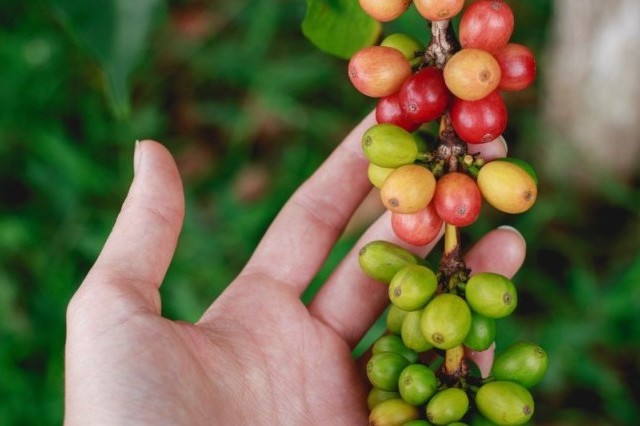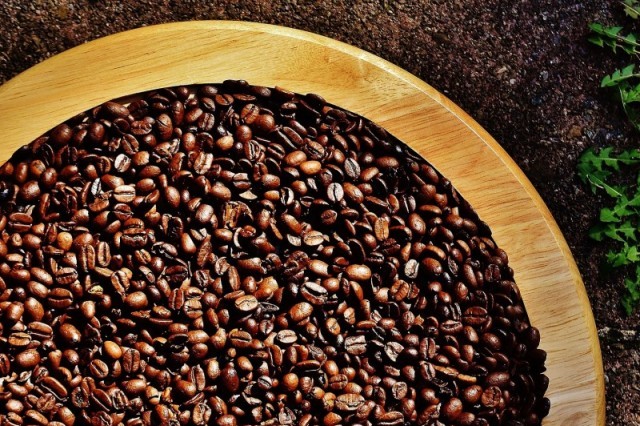Climate Change and How it’s Affecting Our Coffee Growing Regions
With climate change deniers heading the EPA, the emergence of a new sub-group of refugees – ‘climate refugees’ and koalas abandoning eucalyptus tree havens in a desperate attempt to quench their thirst, global warming has never looked so grim. Though if refugees and thirsty koalas don’t startle you, perhaps a coffee-less future will. Yes folks, the unstoppable force of climate change has a new target, our coffee growing regions.
According to a study conducted by the Nepal Government, climate change is predicted to reduce suitable growing area for coffee by about 72% across major coffee growing areas such as Brazil, Vietnam, Ethiopia, Sudan and Kenya. All named bio-climatically unsuitable under climate change by the year 2050. With an overwhelming 100 million people dependent on coffee for survival, both small-scale farmers and larger-scale commercial plantations see a coffee-free future as an immense threat.
The consequence of warmer temperatures
In Nepal particularly, a temperature increase of about 1.6-2.5 degrees Celsius will limit the suitability of the coffee growing areas, as well as reducing the size and quality of the coffee bean. A lack of knowledge among Nepalese coffee farmers on cultivation methods, climatic information and future bioclimatic condition, only adds to the problem.
A lack of knowledge and a decrease in coffee yields will extend to effect the food security, national economy and trade relations of suffering countries, with warmer temperatures comes an increase in the number of droughts during growing seasons, as well as an influx of crop disease and pests, further hindering crop production.
A revision of current agricultural systems
Climate change and its’ affect on coffee growing regions cannot necessarily be avoided, though individuals and groups can enforce measures to lessen its impact in the future, including developing models to assess how regions will change under climate change scenarios, a conversion of monoculture plantations to intercropping systems and revising agricultural systems to adapt to predicted changes such as spatial shifting of crop production systems.
Intercropping systems have potential to combat the effects of a hotter climate under climate change, such as banana and coffee intercropping, whereby the shade of the banana trees helps the coffee plants cope with warmer temperatures. Combining the two would mean greater economic benefit for a limited land-use.
Sustainability through international collaboration
Soulful Concepts is a proud member of the ‘Sustainable Coffee Challenge’, a collective network seeking to make coffee one of the world’s first sustainable agricultural products whilst improving the livelihoods of farmers, sustaining supply and conserving nature. The movement encourages the growth of farmers ability to meet the growing demand for coffee in a socially and environmentally responsible way. The framework sets out the goals and processes required to track renovation, sourcing, forest/coffee mapping and monitoring, gender/youth, climate-smart agriculture and economic viability of farming, as well as improved income, profitability and productivity of farmers.
Soulful Concept’s ‘Sustainable Coffee Tours’ reflect the same values, seeking to educate tourists on coffee growing and issues faced by the industry with a chance to give back, supporting farmers to improve supply chain management and funding. Travellers will participate in a Q&A session with coffee farmers collecting data and insights into the issues coffee farmers face in that region, this information will then be given to the Sustainable Coffee Challenge to analyse. With a new and exciting trip just launched travellers can embark on an eight-day sustainable coffee tour to Southern India, with coffee connoisseur and Art of Espresso Founder, Adrian Capra visiting Elephant Hills Estate. Adrian has been purchasing his coffee from Pathy and the team since early 2010 and actively contributes to the community helping the farmers and their families to rebuild and upgrade the workers huts on the plantation. Travellers will have the opportunity to escape the hustle and bustle of the city, soak up the coffee grounds, and rest under the shade of fruit trees in the stunning agricultural land of Kerala and Tamil Nadu.
The Sustainable Coffee Challenge and Soulful Concepts Sustainable Coffee Tours encourage a necessary open dialogue and agenda on how to best combat climate change’s effect on coffee, whilst similarly avoiding short-term, isolated projects by combining the efforts of international partners. These efforts help create an awareness that is imperative to the survival of coffee, which extends far beyond the livelihoods of farmers and local communities but to the rest of the world.
Article by: Julia Carr-Catzel
References:
- Bunn, Christian, Peter Laderach, Oriana Ovalle Rivera, and Dieter Kirschke. “A Bitter Cup: Climate Change Profile of Global Production of Arabica and Robusta Coffee.” Climatic Change 129. 1-2 (2014): 89-101.
- Perez, Veronica. “Uniting Efforts to Address the Effects of Climate Change in Coffee Production.” Tea and Coffee Trade Journal 183 (2011)
- Ranjitkar, Sailesh, Nani M. Sujakhu, Juerg Merz, Roeland Kindt, Jianchu Xu, Mir A. Matin, Mostafa Ali, and Robert J. Zomer. “Suitability Analysis and Projected Climate Change Impact on Banana and Coffee Production Zones in Nepal.” Plos One 11.9 (2016)
- “The Global Agenda.” The Global Coffee Platform. N.p., 2017.





Pingback: This Travel Company takes Sustainability to the Next Level – Eat My Thoughts